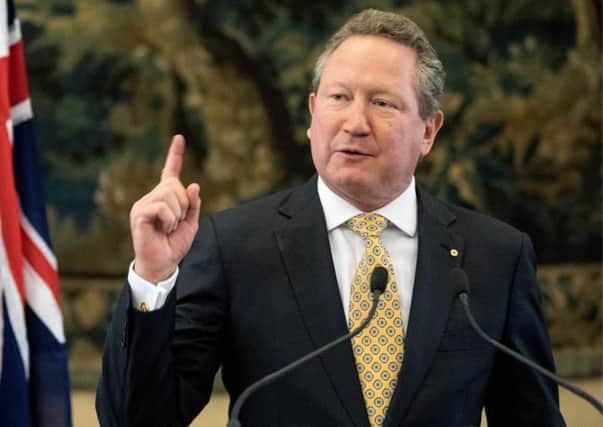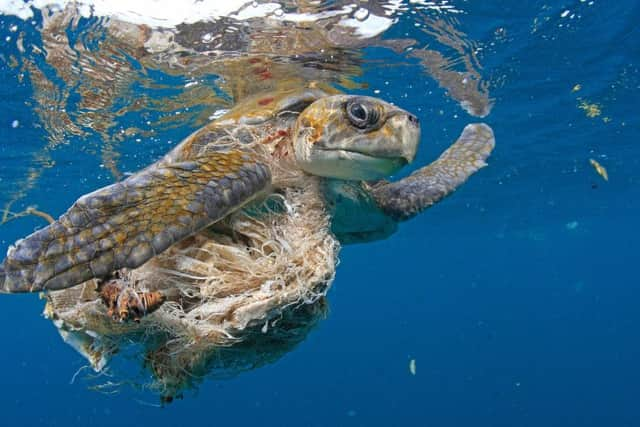Australian billionaire calls for plastic tax to end littering


Billionaire mining magnate Andrew ‘Twiggy’ Forrest, whose family emigrated from Scotland in the 1840s, is travelling the world to put pressure on governments and businesses to deal with the plastic crisis.
The philanthropist has already set aside £77 million of his own cash to clean up the world’s oceans but says he is willing to do “whatever it takes”.
Advertisement
Hide AdAdvertisement
Hide AdHe believes imposing a tax would put an economic value on plastic and stop it getting thrown away.


The move would clean up the environment and create millions of jobs in the countries that are worst hit by the rapidly increasing amount of synthetic material piling up in rivers, seas and landscapes, he says.
Forrest, who set up the charitable Minderoo Foundation, has already visited Scotland and the UK and plans to return for further negotiations to push for a “system-wide solution”.
He said: “Plastic is an amazing material. It’s an invention that has changed the world. It is incredibly strong, incredibly durable. But we need to change its value because we’re deteriorating our environment every day it doesn’t happen.
“I’ve travelled extensively through areas where billions of people have no choice whatsoever over whether to dump their plastic in the environment. There are no collection and recycling facilities, and there never will be because plastic is absolutely worthless.
“The people simply cannot afford the time to recycle their plastic or get rid of it. It is not an economic possibility.
“Around the world everyone trades back aluminium, steel, glass or iron, it gets recycled. But plastic, which outlasts all of those, can get thrown out.
“We need to shift the fundamental value of plastic.”
Plastic production – and litter – is accelerating. Estimates suggest up to 12 million tonnes of plastic ends up in the environment around the world each year.
Advertisement
Hide AdAdvertisement
Hide AdForrest says that big brands responsible for producing most single-use packaging should – and would – foot the bill or else face a massive backlash from consumers.
He said: “The tax will be paid by the brands. It’s their stuff littering the planet. They are happy to buy all the polymer in the world because it’s almost free and wrap their products in it and send it out where it becomes valueless and ends up as rubbish.
“Making plastic valuable will cut its use and mean when it falls into the hands of the consumer it will be a commodity instead of waste.
“If you put a system-wide policy in place, we will get a system-wide recovery.”